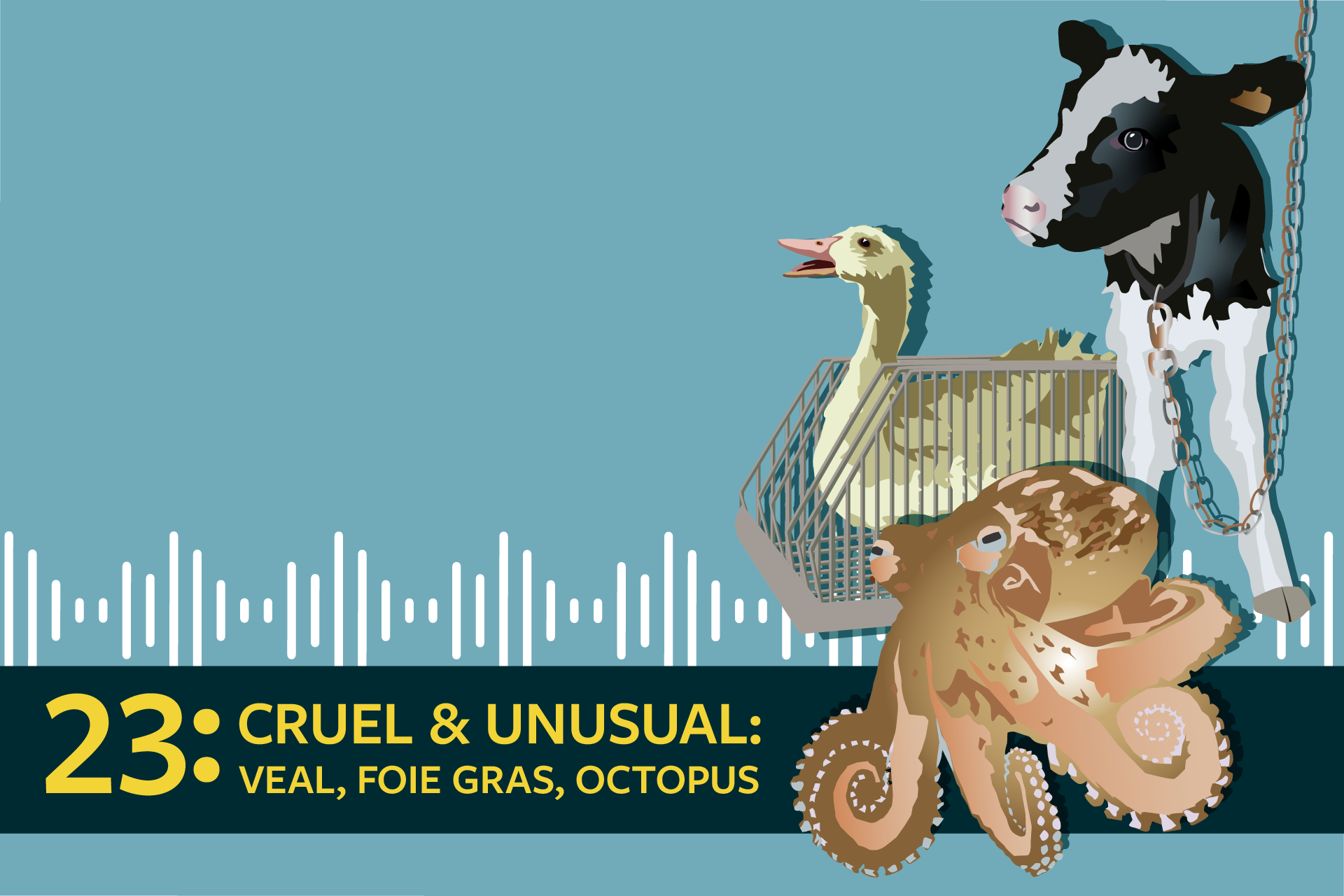Is it too cruel to eat veal, foie gras and octopus?
It might not have been on your radar, but this past Sunday was the annual National Veal Boycott Day. It’s been happening since the 1980s, when the Humane Farming Association called for a national boycott as a way to highlight the extremely cruel practices used in rearing male dairy calves, including separation from the mother, confinement and poor diet, to produce what was then a beloved delicacy. But at this point, the boycott has been so successful that you might not have heard of it, and you are probably not eating much — or any — veal.
Annual veal production has plummeted since the 1980s, from a high of 3.4 million calves to just fewer than 300,000 in 2023. The veal in the parmigianas and marsalas of old fancy restaurant menus has largely been replaced with chicken. What veal production does remain has shifted to more humane practices. But many eaters, if they encounter it, refuse to eat veal because of the association with excessive cruelty.
Dramatic changes in consumer perception and behavior like this don’t come from nowhere. And industry doesn’t change because it’s the right thing to do. In our latest podcast episode, we examine the campaign launched by animal rights activists to stop veal production and consumption, looking deeper at what created the outrage and how activists were able to effect change. But veal isn’t the only product that has come under fire for being especially cruel: We also examine the push to ban foie gras, the fatty liver of ducks and geese that have been force-fed, as well as current efforts to ban the factory farming of octopus.
Hear from animal rights experts as we tease out the issues involved and try to answer some big questions that these delicacies inspire: How do you measure cruelty? Do some animals deserve to suffer less than others because they’re especially cute or smart? And does your right to enjoy a fancy or delicious meal trump the right of an animal not to experience extreme cruelty?
Get the latest food news from FoodPrint.
By subscribing to communications from FoodPrint, you are agreeing to receive emails from us. We promise not to email you too often or sell your information.
Top photo by AndriiKoval/Adobe Stock.
More Reading
300 million male chicks are killed every year. Can in-ovo sexing change that?
September 30, 2025
What do faster line speeds in slaughterhouses mean for animals, workers and food safety?
May 8, 2025
When "Made in America" isn't really: Country-of-origin labeling for beef
May 8, 2025
This vegan tiramisu will bring you joy
March 11, 2025
Finding a pet food that aligns with your values
February 11, 2025
The environmental benefits — and limitations — of hunting as a food source
January 6, 2025
The USDA updated label guidelines to increase transparency — is it enough?
September 12, 2024
How can ecofeminism help us envision the future of food?
July 18, 2024
Switching from beef to chicken isn't the sustainability flex you think it is
June 12, 2024

